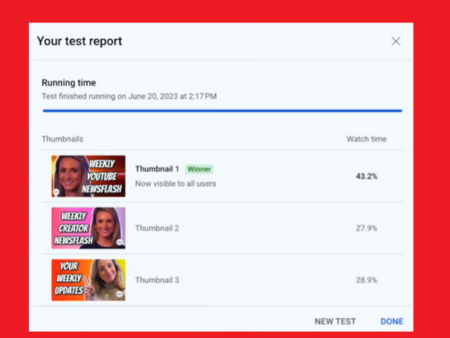The Creator Economy has become a much bigger focus over the last few years, with the rise of TikTok sparking a new battle amongst the social platforms to maximize their creator appeal, in order to keep popular users posting to their apps.
Which makes sense. Vine, which many view as the precursor to TikTok, eventually died out because parent company Twitter couldn’t establish an effective revenue share model for short clips, a key challenge of the format. If TikTok can’t get creators paid, they won’t stick around, which both YouTube and Instagram see as an opportunity to mitigate TikTok’s growth.
Combine that with the increasing work from home push, which has seen more people reassessing how they make money, and indeed, whether they could possibly get paid for the content that they post online, and you can see how the platforms view this as a key opportunity to win over more creators, and keep them posting to their apps – while ideally, fending off rising competition.
It all connects up, and for social platforms battling for audience attention, it’s a perfect scenario for them to also lure the most entertaining users to post more often, in order to prop-up their engagement stats.
But there’s one core, essential truth of the creator economy that undercuts the emphasis and enthusiasm in the space: Most people are simply not good enough at being entertaining, on a consistent basis, to make any real money out of being an online creator.
The stats tell the tale – according to a recent survey conducted by influencer marketing platform Aspire, which incorporates feedback from over 1,700 creators, only 4.3% of them are earning six figures or more per year from their online posts.
Which, really, makes sense. Sure, there are the Mr. Beasts of the world – who recently turned down a billion dollar offer for his YouTube channel. But off the top of your head, how many top online creators can you actually name?
PewDiePie, Dream, the DÁmelio sisters. You likely have your own, more niche favorites as well, but I’m guessing that list starts to thin out pretty quick.
One consideration here is that there’s a limit to how much content we can take in. That means that while some of the top stars are seeing millions of views, and occupying hours and hours of people’s time, that also then further reduces the amount of time left for other creators – which means that, realistically, there’s not enough capacity to support an infinite number of creators in an infinite number of niches.
But the real truth is that being a successful creator is hard.
Not only do you have to be entertaining – which very, very few people are good at every single time they post – but you also need to keep churning out new content every other day. The pressure on creators, in this sense, is very real, and it can lead to significant mental and even physical health impacts for those working to keep up with demand, and keep themselves top of mind for their respective audiences.
But you have to keep posting. Stop uploading your content and people will lose interest, and all that work that you’ve put into building your presence will evaporate very fast.
You have to keep coming up with ideas, and you’ve no doubt seen for yourself how that pressure leads to some of your once favorite creators eventually losing their touch, as they scrape the bottom of the barrel again and again, desperately seeking new inspiration for their content.
The truth is that most people suck at making content, the vast majority of us can’t create great, resonant entertainment every time, over and over again. Some of the more established creators, with bigger audiences, can get away with this, but for most, a run of bad or boring content will see a big chunk of their audience unfollow, losing them all of that attention.
There’s a reason why you see the same movie stars in the top movies over and over again, there’s a reason why you see the same hosts on every other live event on TV. Because being an entertainer is not easy – it takes skill, it takes natural ability combined with a honed focus on what works, and an innate sense of your audience and what they want to see.
Most people just don’t have that, and won’t ever get it, no matter how hard they try.
Creating a trending clip is one thing, but repeating that success is near impossible, and for most, being a one-hit wonder online is the best they’ll ever achieve.
For all the hopes of social platforms that they can get people posting more and more stuff to their apps, helping to boost their all-important engagement levels, so that they can sell more ads, for all the tales that they may want to sell about how creators can make real money online, via their platforms, the truth is, they probably can’t, in general terms.
Most people are not going to see success as online content creators, but the platforms know that the next generation, who’ve grown up with these web-originated stars as their aspirational heroes, are also increasingly hoping that they’ll be the one to make it, and break through the popularity barrier. And they’re cashing in on this, in order to juice their performance stats.
That’s not to say that people should give up. If you’re passionate about a topic, and you create good content, then you should pursue that passion, within reason, and see if you can succeed. ‘Reason’ in this context is relative to your personal situation – but absolutely, exploring what makes you happy, and connecting with like-minded people, can indeed produce results, and career satisfaction.
There’s also the expanded concept of monetization in Web3, and how potential new paradigms for online connection will facilitate more ways for users to take a share of any money generated from their online activity, as opposed to big businesses gleaning the vast majority of benefit from such.
There are potential opportunities within this, but the concept of the Creator Economy being a pathway to monetary success is simply not realistic for the vast majority of people.
As such, it’s less a creator ‘economy’ as it is a ‘creator fantasy’, and it’s the big players that are benefiting from promoting that, and projecting the idea that you too can become a billionaire just by posting online.
You can’t, and it’s safe to say that nobody reading this is ever going to make even $100k from posting videos online.
The fundamental flaw within the Creator Economy push is that it’s not an equal playing field, it’s not a democratically distributed opportunity, and in the majority, nobody’s really making any money. Except the big tech platforms, which are benefitting from the flood of hopefuls posting to their apps.
And eventually, what’s going to happen is that the field will thin, the brand deals will go to fewer and fewer people, and the focus will switch from broad-reaching approaches in influencer marketing, to curated, managed talent pools of the top stars.
Like it always has, via talent agencies, casting directors, publishers, etc. While the internet opens up new opportunities, time and time again, such potential has also, eventually, highlighted why the system had become the way it was before we sought to reform it.
Because it’s more efficient, it’s more effective, and while you want every single person to be able to go and start posting about that thing they really love, and get paid for doing so, it’s highly unlikely they’ll make it on their own.
But talent agencies could recognize their potential and mentor them, or guide them through to the next stage. Other advisors could see a means to connect these users with brand opportunities.
Which is where the real money will be, in the formation of intermediaries that can spot and manage talent to help maximize their potential, while also acting as a conduit to brand deals.
Maybe, that could be you. But a heap has to go right, even in that scenario.
Essentially, the Creator Economy, as it’s currently being presented, is a farce, and slowly, creators, brands and platforms are starting to realize this. YouTube, Meta, TikTok – all the platforms, of course, want to keep adding tools that will get you paid, as a means to keep you posting. But for the













